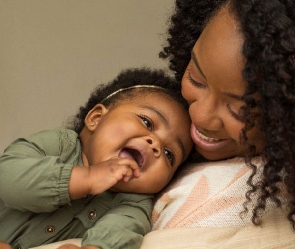A study conducted has revealed that babies born during the Corona Virus pandemic (COVID-19) lock down period have poorer communication skills because of limited social interactions.
The studies carried out by the Royal College of Surgeons in Ireland (RCSI) which examined what life was like for babies born during the pandemic, and the implications for their health and development revealed that babies aged two, born during the pandemic have similar behaviour and development compared with children who were born before COVID-19 arrived.
It indicated that the pandemic born babies had certain communication skills lagging compared to babies born before the lockdown.
The research team led by Susan Byrne, Senior Lecturer at the RCSI, and Jonathan Hourihane, the RCSI’s professor of paediatrics indicated that, the research focused on babies born in the first three months of lockdown and compared with a similar group of babies born before the pandemic. A total of 354 families and their babies were involved in the study.
“We wanted to understand what life was like for babies born during the pandemic, and what it might mean for their general health and development,” Byrne told the Observer.
The research discovered that these babies of six months, had limited interaction with relatives and family friends, with an average of only three individuals, including their parents, having kissed them.
Additionally, a quarter of the babies had not met another child their age by their first birthday.
Parents, when asked about raising children during the lockdown, Byrne, indicated that most of them described it as a feeling of loneliness and isolation.
However, the study also revealed that family time and bonding increased during this period.
Babies born during the pandemic probably heard fewer words because they were not getting out of their houses, and this may have led to their slightly lower communication scores compared with those of children born earlier.
Nevertheless, the study showed no overall decline in other developmental aspects such as motor skills and problem-solving abilities. Questionnaires filled out by parents indicated no differences in their children's behaviour regarding sleep problems, anxiety, or social withdrawal.
“Covid restrictions ended quite a while ago, and babies have been out and about doing normal activities, meeting other people, going to play groups. And you’d hope that the findings would settle by the age of five – but we need to find out conclusively if that is really the case,” Bryan indicated
The research team plans to extend the study, following the babies until they reach school age at five years old. This will provide further insights into the long-term effects of the pandemic on their development.
Interestingly, the relatively encouraging conclusions of this Irish study contrast with the academic performances of older children. Recent data from England revealed that primary school pupils continue to perform below pre-pandemic standards in mathematics, writing, and reading.
Standard assessment tests (Sats) taken at the end of primary school indicated a slight improvement compared to the previous year, but the results remained significantly behind those from 2019. The figures showed that less than three-fifths of pupils are reaching the expected standard in reading, writing, and math, falling short of the government's target of 90% by 2030.
The challenges faced by children during the pandemic, including limited social interaction and disrupted education, have had a lasting impact. The need for adequate support and resources to facilitate educational recovery becomes increasingly apparent.
Individual stories, such as that of Alex Thomas, whose children have faced speech and language challenges, highlight the personal struggles experienced by families. Access to appropriate therapies and support services remains crucial in addressing these issues.
Understanding the long-term effects of the pandemic on child development is of paramount importance. Continued research and comprehensive support will be essential in helping children overcome any setbacks and thrive as they grow older.
NW/WA
Watch the latest episode of The Lowdown below:
In the meantime, watch the latest episode of #SayItLoud on GhanaWeb TV with Etsey Atisu below:
Share your news stories and ideas with GhanaWeb

To advertise with GhanaWeb

General News of Monday, 17 July 2023
Source: www.ghanaweb.com













